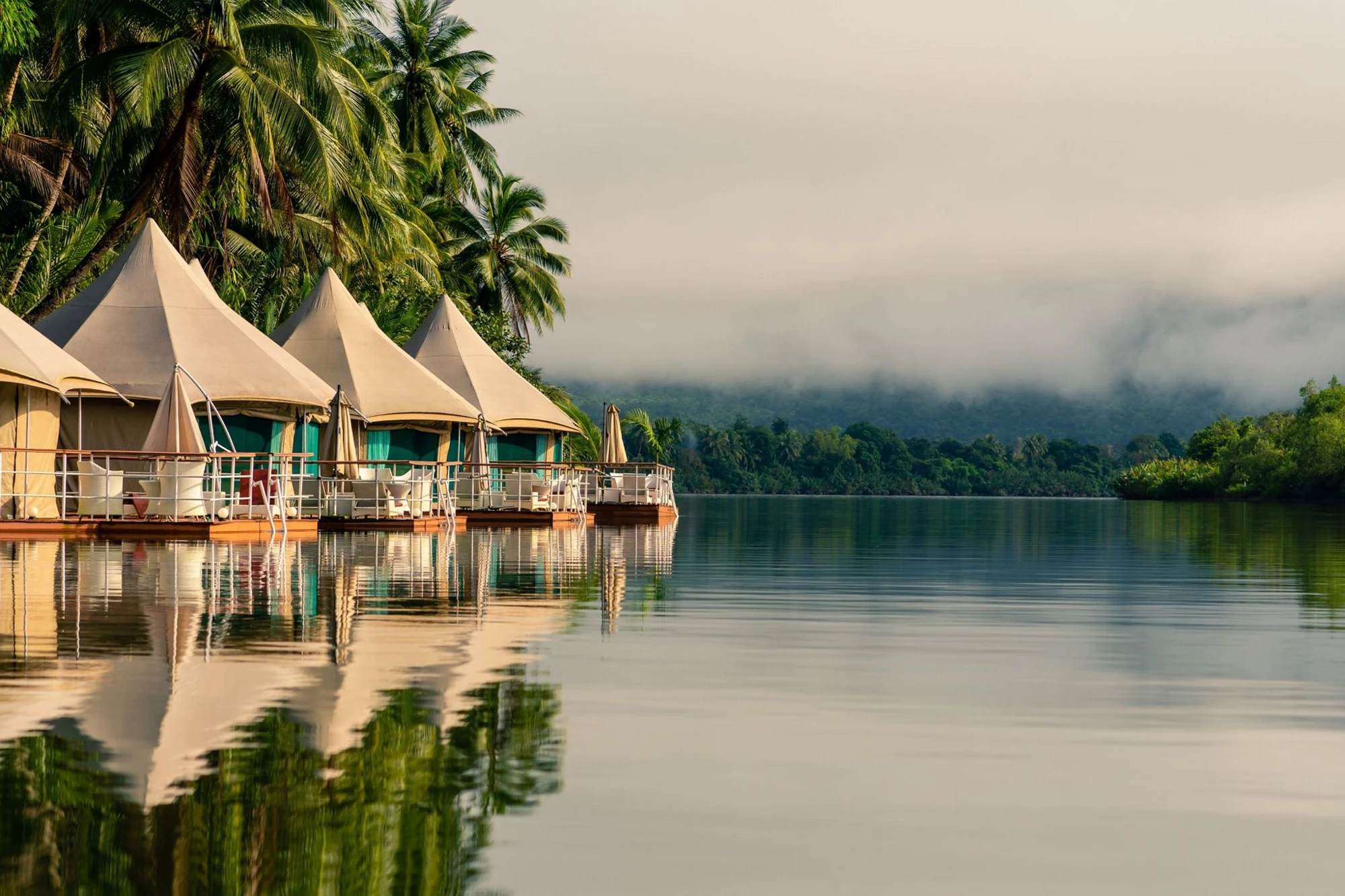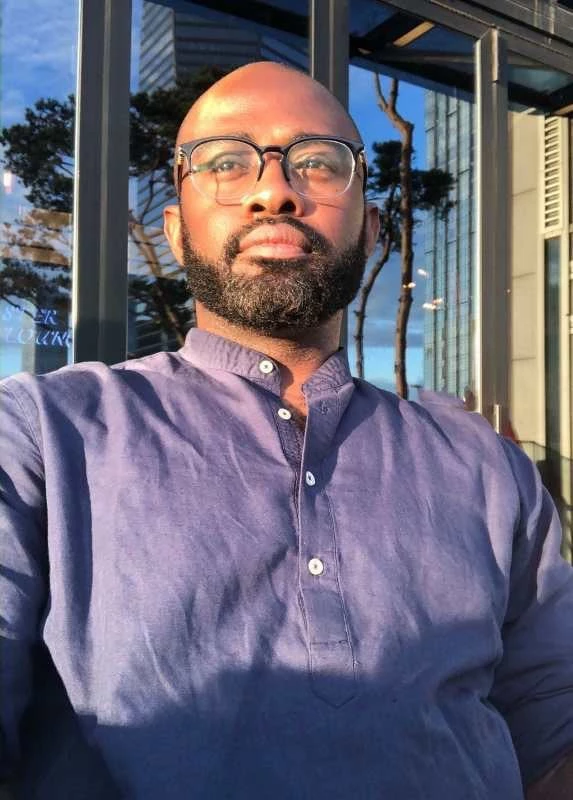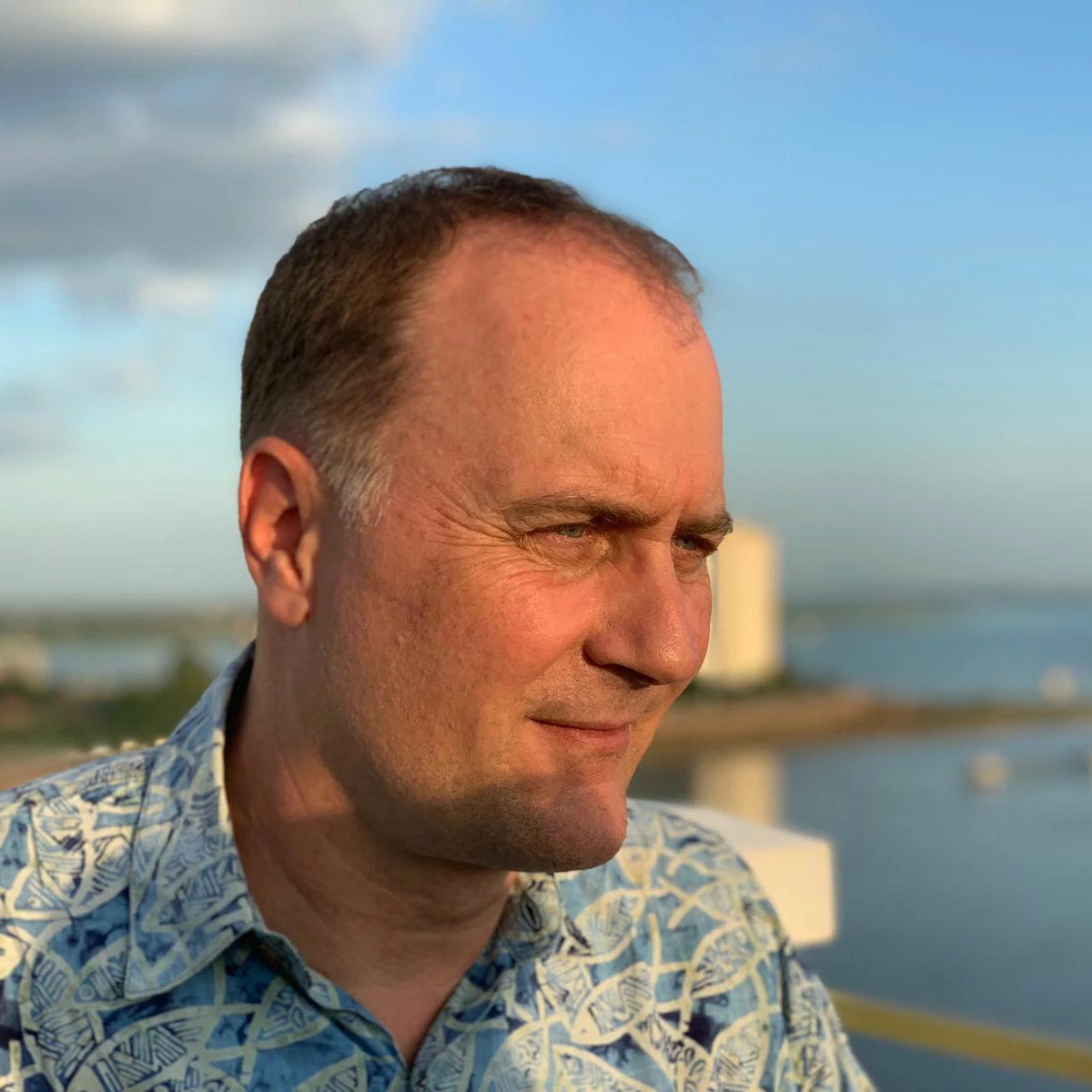 Four Rivers Floating Lodge
Four Rivers Floating Lodge
Iconic Cambodian landscapes, such as the Cardamom Mountains have a wealth of natural assets that allow for new and exciting multi-day tourism itineraries for domestic and international markets. In addition, the remoteness of Cambodia’s picturesque forested landscapes also entices the mid to high-end tourist market, who are looking to unwind and unplug.
Cambodia’s tourism industry is a key contributor to its economic growth. It provides a sizable contribution to Cambodia’s economy (21 percent of GDP in 2019), which has been on the rise for the past ten years. The ecotourism sector was a notable part of this and, in recent years, was showing signs of even greater growth than the rest of the tourism industry.
A recent slowdown in the growth of tourism in Cambodia, however, points to a need to diversify the sector. Angkor Wat in Siem Reap has been the main attraction to Cambodia, and while the iconic temples still draw crowds, statistics show that growth in arrivals to Angkor sites is slowing. Experts suggest that the decelerated growth of tourist arrivals is due to fewer Chinese tourists visiting Siem Reap. Instead, these tourists are increasingly drawn to Cambodia’s coastal areas. Another reason is that higher competition from neighboring countries, especially Vietnam, is drawing Chinese and South Korean tourists away from Siem Reap.
Trends of increased visitors to ecotourism sites in Cambodia indicate that ecotourism is a product that could be further developed to harness its potential, and the Cambodian government wants to capitalize on this potential. Developing tourism can also create much-needed revenues to help manage Cambodia’s extensive protected area (PA) network and protect important economic services provided by forests in the PAs.
“Invest now in ecotourism development to: DIVERSIFY Cambodia’s tourism product with ecotourism offerings; CREATE jobs and STIMULATE rural economies; and PROTECT the forest assets that underpin ecotourism” is one of the main key messages that has been formulated in a newly released World Bank advisory report on Enabling Ecotourism Development in Cambodia; a report which has been developed to support the Royal Government of Cambodia in the sustainable development of ecotourism. One of the main tenets promoted in the report is around investing and diversifying the country’s tourism, which is part of the Bank’s broader strategy for sustainable management of the country’s natural capital and strengthening its links to the economy.
COVID-19 is an additional reason for diversifying the country’s tourism offerings. “BUILD BACK BETTER after COVID-19 in the tourism sector by investing in ECOTOURISM” is another key message being promoted in the World Bank’s advisory report. As more people become unemployed due to the fallout of COVID-19, they are more likely to turn to illegal activities to supplement incomes, such as illegal wildlife trafficking and logging, and clearing forests for agriculture. The promotion of ecotourism development in Cambodia is, therefore, an essential element of Cambodia’s post-COVID-19 recovery strategy. It is also an essential ingredient that can pave the way towards the building back of a more resilient economy, which in turn can boost sustainable livelihoods and rural job creation for the Cambodian people.
In response to the need to diversify Cambodia’s tourism product and respond to the COVID-19 through the development of ecotourism, this new World Bank report provides five key recommendations each with strategic actions for:
- Mitigating the impacts of COVID-19 on the ecotourism industry.
- Strengthening regulatory frameworks for ecotourism.
- Strengthening key institutions and partnerships for ecotourism development.
- Strengthening ecotourism destination planning, management, and marketing.
- Enabling and supporting the private sector in tourism.
The World Bank will support the Royal Government of Cambodia on implementing these recommendations and developing its ecotourism sector through the Cambodia Sustainable Landscape and Ecotourism Project (CSLE). The analytical work on ecotourism will also be expanded to Cambodia’s coastal areas with funding from the PROBLUE trust fund and will inform a regional approach for ecotourism development with funding from the PROGREEN trust fund.




Join the Conversation